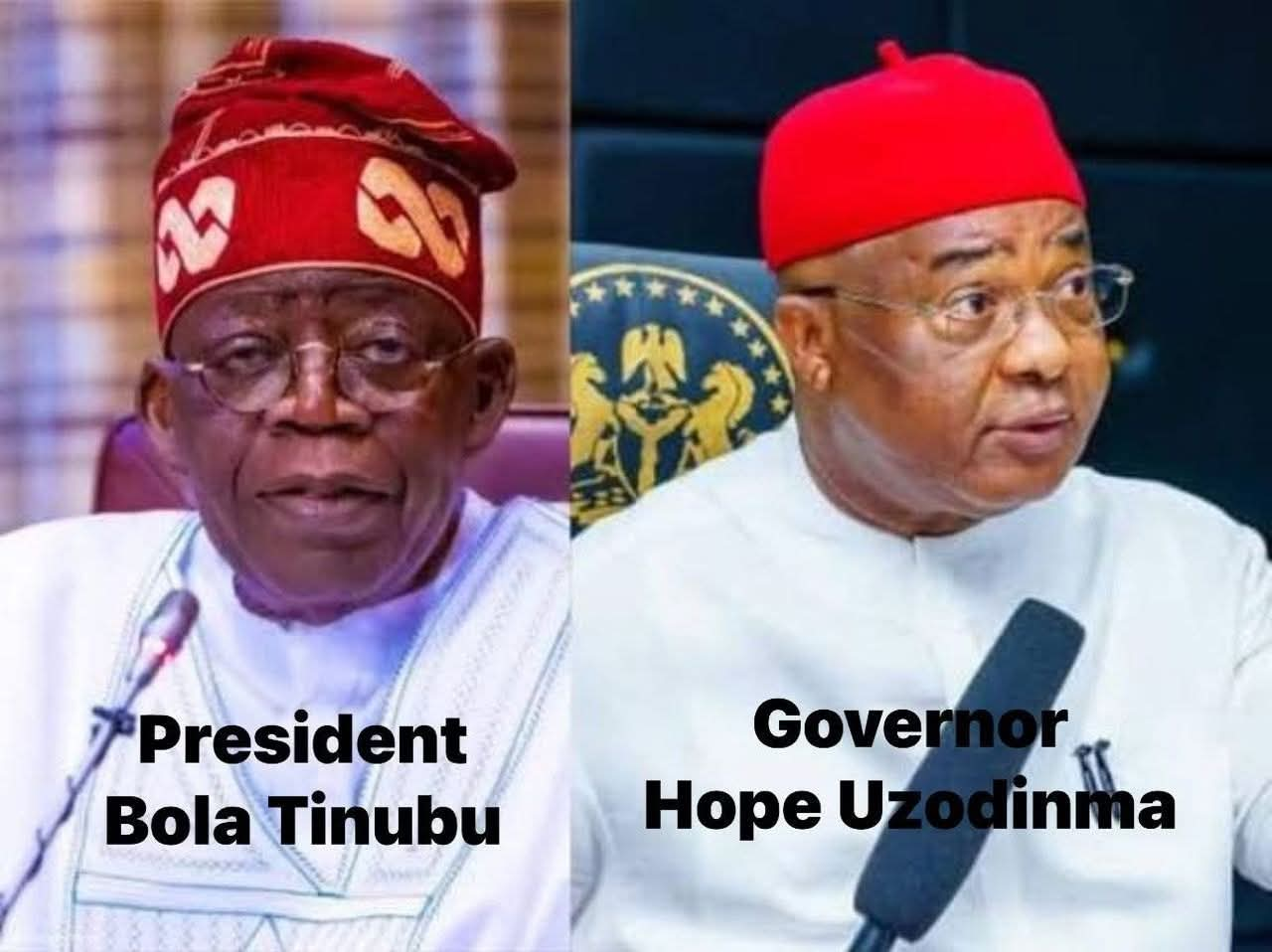By Sunday Dare
On Monday, 29th September, 2025, President Bola Ahmed Tinubu will journey eastward, to Owerri, the beating heart of the Igbo nation. If Kaduna reinforced President Tinubu’s northern support base and acceptance, and Ibadan reaffirmed his Yoruba roots, then Owerri embodies his embrace of the Igbo, a people of unmatched resilience, intellect, and industry.
Into this crucible of identity, commerce, and culture, the President will arrive, guided by Governor Hope Uzodimma of Imo State, to launch a book in his honour and to reassure Ndigbo of their central place in President Tinubu’s vision for Nigeria.

Owerri: The Pulse of Igbo Identity
Owerri is no ordinary city. Known as the “Eastern Heartland,” it has long been the political and cultural meeting point of the Igbo nation. Its landmarks tell the story: Assumpta Cathedral, the majestic seat of the Roman Catholic Archdiocese, towering as a spiritual anchor for millions; Freedom Square, the civic stage where public life and collective expression find voice.
Owerri’s history also carries scars and triumphs. During the Nigerian Civil War, it was the last capital of Biafra before the guns fell silent in 1970. Out of that crucible of strife and resilience, Owerri emerged as a city determined never to lose its spirit. Today, its bustling streets and vibrant economy stand as a testament to the Igbo will to endure, rebuild, and flourish.
The city has given Nigeria some of its finest icons like Emmanuel Amunike of the Super Eagles, while the State itself, has produced titans such as Raymond Njoku, nationalist and statesman; the “man of timber and caliber,” K.O. Mbadiwe; Sam Mbakwe, the “weeping governor” whose vision still inspires; Emmanuel Iwuanyanwu, business mogul and philanthropist; Arthur Nzeribe, political tactician; and Onyeka Onwenu, the songbird of Africa. Each name reflects Imo’s dynamism and genius.
A City of Culture and Learning
Owerri is also famed for its vibrant arts and cultural scene. Its social centres, music houses, and annual festivals keep alive the Igbo spirit of performance and storytelling. The city pulses with highlife rhythms, contemporary music, and theatre, making it a creative hub in South East Nigeria.
Uzodimma’s unmatched strides in the digital economy, which have become his defining legacy, setting him apart from his predecessors.
In redefining youth empowerment for the digital age, the Governor has replaced handouts with codes — transforming young people from seekers of aid to creators of opportunity through the SkillUpImo programme, where over 40,000 youths have been trained and equipped with digital tools for the future.
This marriage of scholarship and creativity makes Owerri not just the Igbo heartland, but also one of Nigeria’s most forward-looking cities where tradition, intellect, and innovation coexist.
Tinubu and the Igbo: A History of Respect
For President Tinubu, Owerri is not uncharted territory. As Governor of Lagos, he set a tone of inclusivity by appointing Igbo sons and daughters into his cabinet, entrusting them with critical portfolios. It was a powerful gesture of accommodation that affirmed his belief that governance is strongest when diversity is embraced.
As President, he has extended the same spirit nationwide. His administration has prioritized major infrastructure in the South East: completing the Second Niger Bridge; rehabilitating the Enugu–Port Harcourt Expressway; upgrading federal roads linking Imo to its neighbors; and supporting industrial corridors that promise jobs and growth. These are not token gestures, but commitments to root Igbo aspirations firmly within Nigeria’s shared progress.
Uzodimma as Guide and Host
Governor Hope Uzodimma has transformed Imo’s landscape and will host the President as both ally and son of the soil. Under his watch, road construction and expansion projects, modern drainage systems, streetlights, the Orashi free trade zone that has attracted more than seven oil and gas companies in the state and urban renewal initiatives have reshaped Owerri’s aesthetics and improved mobility.
He has also pushed agricultural reforms: subsidies for inputs, mechanization programs, and farmer support initiatives that have boosted food security and lifted rural livelihoods. These achievements speak of a leader intent on marrying infrastructure with human development.
In a nation where leadership is not bestowed or handed on a platter, but painstakingly earned, Governor Hope Uzodimma has carved his niche in the annals of Nigerian Governance through hardwork, diligence, tenacity, tact, and a people-centric disposition.
He represents the new breed — futuristic thinkers, bold and Savvy minds. Uzodimma is a steady valve in the heart of the Igbo nation. Pressed on all sides by challenges and critics, yet steadfast in service and progressive politics, he has become the new face of Igbo leadership, reconnecting the South East to the National through hhis dear state, the motherland of Igbo pride.
The Significance of the Moment
Owerri is more than a city; it is memory and meaning. It remembers the tears of war, yet it thrives as a hub of culture, education, and enterprise. By coming here, President Tinubu sends a message: the Igbo are not at the periphery of Nigeria’s destiny, but central to it.
If Kaduna symbolized Northern Nigeria’s decision-making nerve, and Ibadan embodied Yoruba heritage and ascendancy, then Owerri represents the Igbo crucible, a place of valor and rebirth, of icons and institutions, of faith, culture, and resilience.
Beneath the shadow of Assumpta Cathedral, within the energy of Freedom Square, and in the rhythm of its creative life, the President will not only launch a book, but also reaffirm his pact with the Igbo nation as kith, as kin, and as indispensable partners in building a stronger Nigeria.
Sunday Dare, CON, is the Special Adviser to the President on Media and Communications






